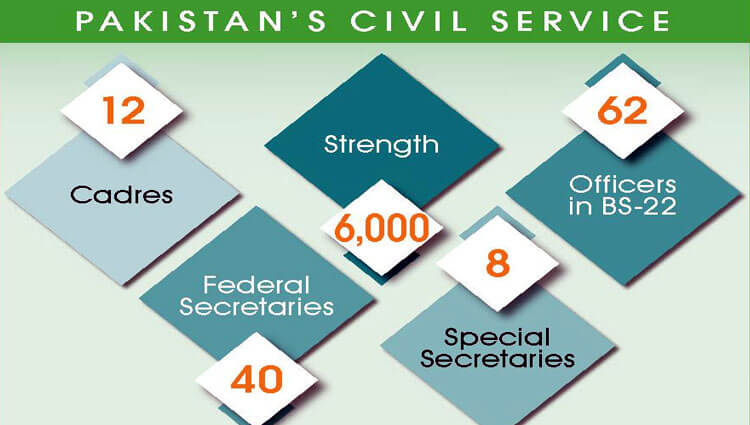The federal government has said that reforms in the civil service would pave the way for `forced` retirement of delinquent officers from government service and introduction of tough criteria for promotion of bureaucrats.
Federal Minister for Education and Professional Training Shafqat Mehmood, who is also chairman of the Cabinet Committee on Institutional Reforms, told a press conference on Wednesday that Prime Minister Imran Khan on Tuesday approved these reforms and that the rules that governed the civil service had been brought in conformity with the reforms.
He said under the Civil Servants Efficiency and Discipline (E&D) Rules 2020, promotion of a civil servant would be deferred if he/she was facing any criminal proceedings. If an inquiry, investigation or reference was pending against an official in the National Accountability Bureau, Federal Investigation Agency or any other investigation agency, his promotion would be deferred.
The minister said promotion could now be recommended in cases related to subjudice seniority and disciplinary or criminal cases pending for more than three years.
He said that revised weightages had been notified for promotion, which included 40 per cent for personal evaluation reports (PERs) and 30pc each for training and evaluation by the Central Selection Board.
To ensure transparency, reasons for deferment/supersession would be conveyed to officials concerned.
Mr Mehmood said that for retirement from service, the composition of retirement boards/committees had been finalised, which included chairman of the Federal Public Service Commission for officials in BS-20 and above, secretary for officials in BS-17to BS-19 and senior joint secretary for officials in BS-16 and below.
The grounds for directory retirement include adverse remarks in three Performance Evaluation Reports (PERs) or as many average PERs, and being superseded twice.
The minister expressed the hope that the Rules would boost the performance of bureaucracy and state institutions.
According to the minister, these rules would ensure transparent and effective internal accountability of bureaucrats and bring efficiency and discipline in their service.
Under the new rules, the minister said, an inquiry against a government official would have to be decided within about 105 days: 14 days for submission of response, 60 days for the inquiry committee and 30 days for the authority to decide the case.
Earlier, no timeframe was fixed to conclude the proceedings and as a result cases lingered on for years. An opportunity of personal hearing would be provided by the authority/hearing officer to the official against whom an inquiry is being conducted, Mr Mehmood said.
Plea bargain and voluntary return had been included in the definition of misconduct and the civil servants involved in these practices would now be proceeded against, he said.
One of the main features of the rules was that in case of an inquiry, the case would be heard by the authority, an inquiry officer or a committee, instead of any authorised officer who was assigned to decide the issue, he said.
Earlier it was seen that whenever an official was assigned to hold an inquiry, he usually disposed of the matter either by awarding a minor punishment or under some influence or pressure, the minister said. He could also decide the case in whatever time he deemed appropriate. However, the authority would now have to decide the case in 30 days.
According to the new rules, in case of officers of the Pakistan Administration Service (PAS) and Police Service of Pakistan posted in the provinces, a two-month timeline has been provided to the chief secretary to submit a fact-finding report, failing which the Establishment Division can proceed on its own.
Timelines have been introduced for every step of the proceedings. The procedural issues relating to provision of record, slackness on part of departmental representatives, suspension and proceedings against officers on deputation/ leave/scholarship have been clearly provided in the new rules.
The rules further state that the Establishment Division has been authorised to issue subsidiary instructions to avoid any delay in finalising the inquiries.
In case of multiple suspected officers in a single case, restriction of appointing a single inquiry of ficer has been imposed to ensure transparency and avoid different decisions in a single case.
The minister said different reforms in civil service had been approved, including Civil Servants Promotion (BS 18-21) Rules 2019; Civil Servants (Directory Retirement from Service) Rules 2020; Efficiency and Discipline Rules, 2020; Revised MP Scale Policy 2020; Rotation Policy 2020 and Rationalisation of Cadre Strengthen Induction in PAS.







